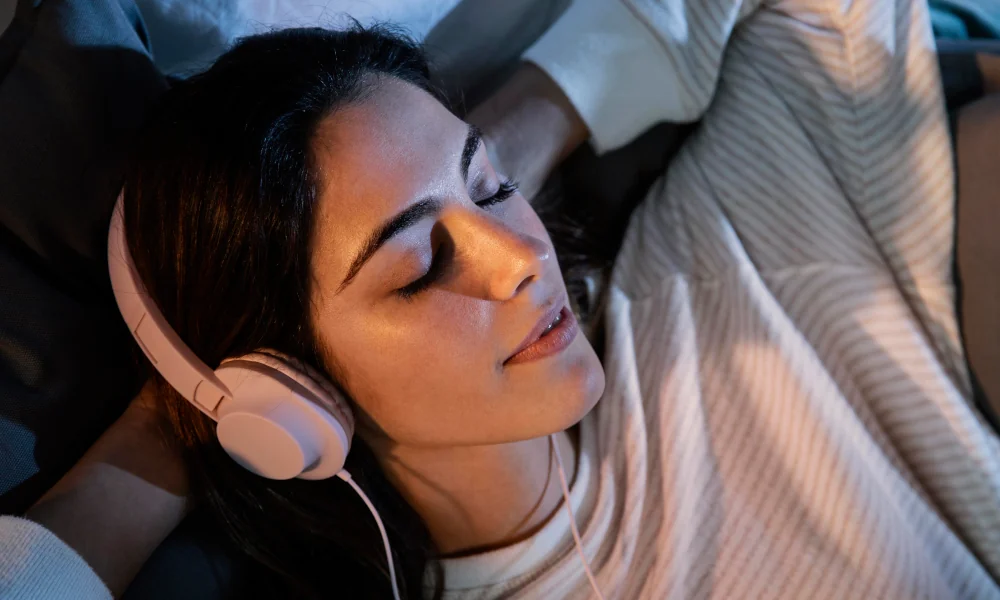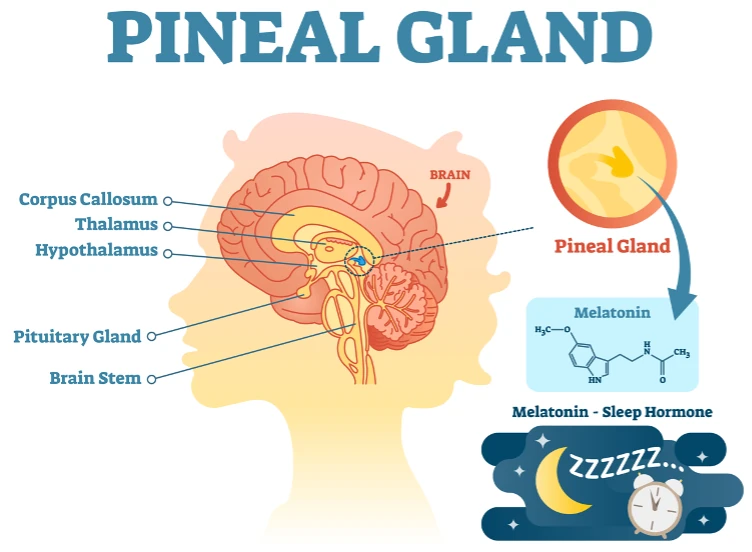The relationship between music and sleep has been studied for decades. Research suggests that music can serve as a powerful tool in improving sleep quality and addressing various sleep-related challenges. Many people are discovering the benefits of incorporating music into their nighttime routine. This article will discuss the scientific evidence supporting the benefits of music for sleep, the types of music that are most effective, practical tips and potential drawbacks of using music for sleep.
Can listening to music help you sleep?
Listening to music can help to improve sleep quality for many individuals. Various studies have demonstrated that music can be an effective tool for reducing stress and anxiety, both of which are significant barriers to good sleep. By calming the nervous system, music can lower heart rate and breathing rate, creating a physiological state conducive to sleep. Research has shown that individuals who listen to music before bedtime often experience enhanced sleep quality, including longer sleep duration and fewer awakenings during the night. Music has also been found beneficial in individuals with chronic insomnia; people have better sleep patterns and reduced symptoms of insomnia after incorporating music into their nightly routine.
However, it is important to acknowledge that the effects of music on sleep can vary widely from person to person. While music can be a valuable tool for enhancing sleep quality for many, it is not a one-size-fits-all solution. Many people find music to be a relaxing aid that helps them fall asleep more easily; others may find it stimulating or even distracting. Factors such as the type of music, volume, and individual preferences all play a role in how effective music can be as a sleep aid. Therefore, individuals must experiment with different types of music and find what works best for their unique needs.
The science behind music and sleep
The relationship between music and sleep is rooted in complex neurobiological mechanisms. When we listen to music, multiple brain regions become activated, creating a cascade of responses that can influence our transition to sleep. The auditory cortex processes the basic elements of music, such as pitch, rhythm, and harmony, while the limbic system regulates emotional responses to these musical elements. Simultaneously, the prefrontal cortex integrates these experiences, influencing our cognitive and emotional state.
Neuroimaging studies have revealed that calming music can modulate brainwave patterns, promoting the production of alpha waves (8-13 Hz) associated with relaxation and the early stages of sleep. As exposure to soothing music continues, the brain gradually shifts toward theta waves (4-7 Hz), characteristic of light sleep and drowsiness. This progression helps create an optimal neurological environment for sleep onset.
The physiological impact of music extends beyond the brain. Research has demonstrated that listening to classical music has a positive effect on heart rate, respiratory rate and mood states. These changes mirror the body’s natural physiological transition toward sleep, effectively priming the autonomic nervous system for rest. Furthermore, music has been shown to reduce cortisol levels, creating a more conducive internal environment for sleep.
Best type of music for better sleep
Classical music, particularly compositions with slow tempos and minimal dynamic variation, has demonstrated remarkable effectiveness in promoting sleep. Research has shown that Mozart’s music has sleep-inducing properties. This type of music typically maintains a tempo of 60-80 beats per minute, which corresponds to the ideal heart rate for sleep onset.
Nature sounds, and ambient music have also shown promising results in sleep studies. The consistent, predictable patterns of rainfall, ocean waves, or forest sounds can mask disruptive environmental noise while providing a soothing acoustic backdrop. Research has shown that natural sounds can activate the parasympathetic nervous system more effectively than synthetic sounds, leading to deeper relaxation. This activation helps the body transition into a state that supports rest and recovery, which is essential for high-quality sleep.
The selection of sleep music should ultimately align with personal preferences, as what relaxes one person may not work for another. Experiment with various genres to find the most effective sleep music. Ideally, choose music with minimal rhythmic variation, gradual melodic progressions, and no sudden dynamic changes. Genres like ambient electronic, new age, or specially designed sleep music that incorporate these elements can be highly effective.
Top tips for using music to improve sleep
Incorporating music into your sleep routine requires thoughtful implementation to maximise its benefits. Creating a dedicated sleep playlist lasting 45-60 minutes can help to establish a consistent pre-sleep routine. The playlist should progress from slightly more energetic pieces to increasingly calming compositions, helping the body through a natural wind-down process. Additionally, white noise machines can help people to have high-quality sleep.
Volume management is crucial; experts recommend setting the music at 40-50 decibels (approximately the volume of light rainfall) to avoid disrupting sleep architecture. Utilising speakers rather than headphones can prevent discomfort during sleep, though specialised sleep headphones may be suitable for side sleepers or those sharing a bedroom. Additionally, music tuned to 432 Hz has been found to significantly increase alpha brainwave activity, promoting calmness without affecting sleep latency during daytime naps.
Smart timing of music exposure can enhance its effectiveness. Beginning musical exposure 45-60 minutes before the intended sleep time allows the body to synchronise its natural sleep-preparation mechanisms with the acoustic environment. This approach helps to establish a stronger association between specific music and sleep onset, potentially strengthening the sleep-inducing effect over time.
Disadvantages of listening to music when sleeping
Despite its potential benefits, music during sleep isn’t without drawbacks. Extended use of headphones can cause physical discomfort and potentially damage hearing if volume levels are too high. Some individuals may develop a psychological dependency on music for sleep, making it difficult to fall asleep in its absence.
Additionally, some individuals may find certain types of music stimulating or distracting, while others may find it deeply relaxing. This variability underscores the importance of selecting personal music that promotes relaxation without causing disruption. The presence of lyrics in music can engage cognitive processes that interfere with sleep onset. Music with lyrics can activate language processing centres in the brain, potentially maintaining a higher level of alertness than instrumental music.
Technical considerations such as the use of streaming services or devices that require internet connectivity can introduce unwanted notifications or advertisements that disrupt sleep. The blue light emission from music-playing devices can also interfere with melatonin production, which is vital for sleep. If persistent sleep problems occur, it is important to consult with a sleep specialist to rule out any underlying medical condition.
So, can listening to music help you sleep?
The scientific evidence strongly supports music’s potential as a sleep aid, though its effectiveness varies among individuals. When properly implemented, music can serve as a natural, non-pharmacological intervention for improving sleep quality. The key lies in personalising the approach, selecting appropriate music, optimising the listening environment, and maintaining consistent implementation.
Music can play a significant role in improving sleep quality, but its effects can vary from person to person. If you’re struggling with sleep difficulties or other sleep-related issues, don’t let them impact your quality of life. Whether you need guidance on incorporating music into your sleep routine or want to explore potential underlying causes of your sleep difficulties, consulting a healthcare professional can provide effective solutions.
As a leading sleep psychiatrist with years of experience in sleep medicine, we provide comprehensive evaluations and personalised treatment plans that integrate the therapeutic use of music to address your unique sleep concerns. Contact us to schedule a consultation and take the first step towards better sleep.










